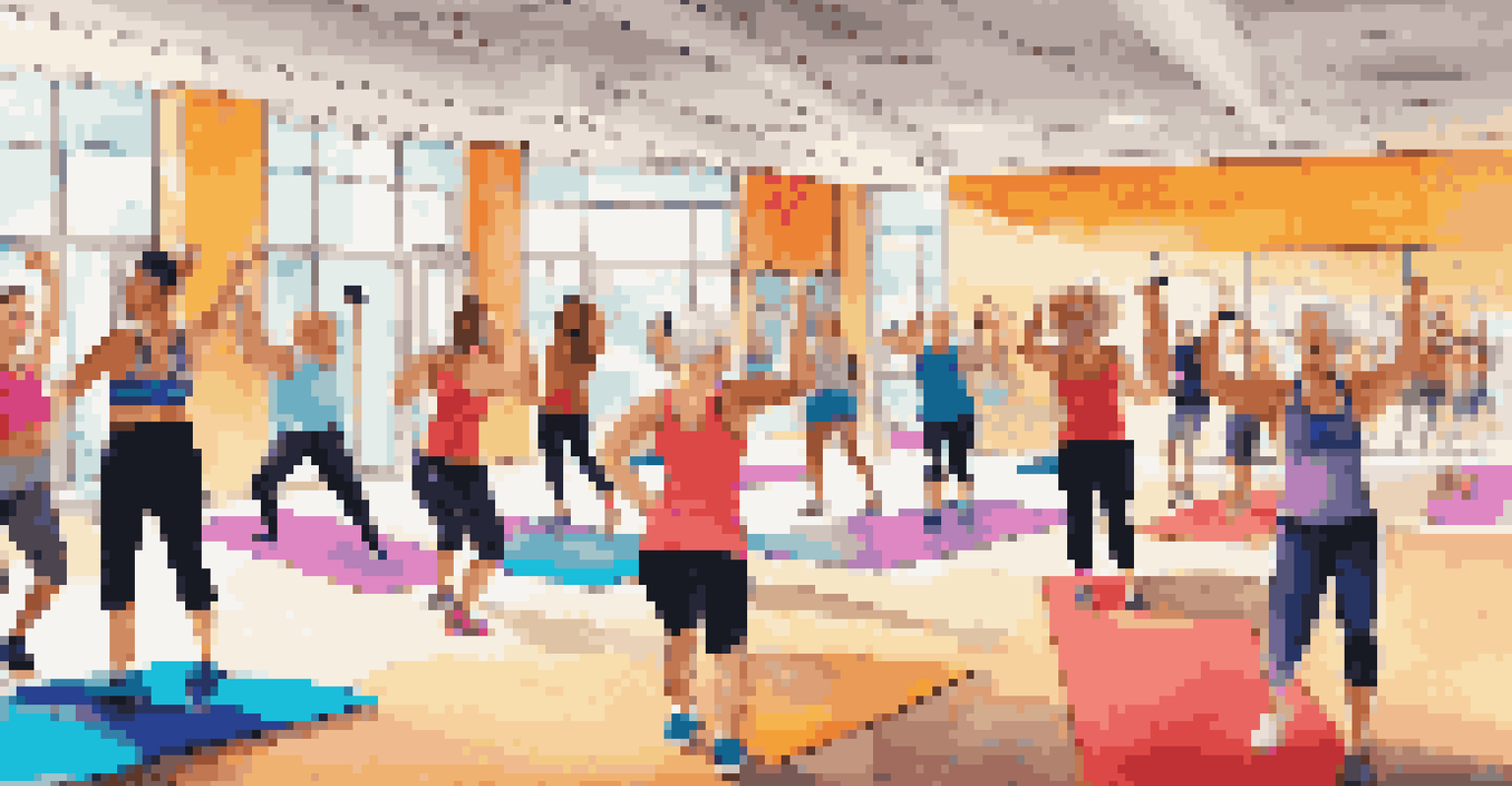The Role of Exercise in Enhancing Sleep Patterns and Quality

Understanding the Connection Between Exercise and Sleep
Exercise and sleep are two sides of the same coin; they both play crucial roles in our overall well-being. Engaging in regular physical activity can significantly impact how well we sleep. When we understand this connection, it becomes easier to prioritize exercise in our daily routine.
Exercise is a celebration of what your body can do. Not a punishment for what you ate.
Research shows that people who exercise regularly report better sleep quality and have longer sleep durations. This is because exercise helps regulate the body's internal clock, or circadian rhythm, which influences when we feel sleepy or alert. Simply put, moving your body during the day can make it easier to relax at night.
Additionally, exercise can reduce symptoms of anxiety and depression, which are common culprits of sleep disturbances. By alleviating these issues, exercise creates a more conducive environment for restful sleep.
How Different Types of Exercise Affect Sleep
Not all exercises are created equal when it comes to sleep enhancement. Aerobic exercises, like running, cycling, or swimming, tend to be the most effective for improving sleep quality. These activities elevate your heart rate and increase blood circulation, promoting better physical health and, consequently, better sleep.

On the other hand, strength training exercises can also contribute positively to sleep quality. While they may not directly boost cardiovascular health, they help build muscle and strength, which can lead to improved body mechanics and less discomfort during sleep.
Exercise Boosts Sleep Quality
Regular physical activity enhances sleep by regulating the body's internal clock and reducing anxiety.
Lastly, activities like yoga and stretching are particularly beneficial for calming the mind and reducing stress, which can further enhance sleep quality. Incorporating a mix of these exercises into your routine can provide comprehensive benefits for both your body and sleep.
The Science Behind Exercise-Induced Sleep Improvements
The science behind how exercise improves sleep is quite fascinating. Physical activity increases the production of endorphins, which are hormones that promote feelings of happiness and relaxation. This biochemical shift can help you unwind and prepare your body for sleep after a long day.
Movement is a medicine for creating change in a person's physical, emotional, and mental states.
Moreover, exercising raises your core body temperature temporarily. Once your body temperature drops post-exercise, it signals to your body that it’s time to rest, mimicking the natural temperature drop that occurs during sleep. This physiological response can lead to a more profound and restful slumber.
Additionally, regular exercise can help alleviate sleep disorders like insomnia and sleep apnea. By incorporating physical activity into your lifestyle, you’re not just helping your body but also addressing the underlying issues that can disrupt your sleep patterns.
Optimal Timing for Exercise to Boost Sleep Quality
Timing your workouts can significantly influence the quality of your sleep. Many experts suggest exercising in the morning or early afternoon when your energy levels are high. Morning workouts can help set a positive tone for the day and regulate your sleep-wake cycle.
However, if you prefer exercising in the evening, it’s best to finish your workout at least 1-2 hours before bedtime. This window allows your heart rate and body temperature to return to normal, making it easier for you to fall asleep quickly.
Timing Matters for Sleep Benefits
Exercising in the morning or at least 1-2 hours before bedtime can optimize sleep quality.
Ultimately, the best time to exercise is when it fits your schedule and lifestyle. The key is consistency; regularity in your workout routine can lead to improved sleep patterns, regardless of the time of day.
Creating a Balanced Exercise Routine for Better Sleep
Finding the right balance in your exercise routine is essential for maximizing sleep benefits. Aim for a mix of aerobic, strength, and flexibility exercises each week. This combination not only promotes physical health but also enhances sleep quality.
As a general guideline, try to incorporate at least 150 minutes of moderate-intensity aerobic activity weekly, along with muscle-strengthening exercises on two or more days. This balance can help you achieve optimal levels of fitness and, in turn, better sleep.
Don't forget about the importance of rest days! Allowing your body time to recover is crucial for maintaining energy levels and improving sleep quality. Listen to your body and adjust your routine as needed to find that sweet spot.
The Role of Mindfulness and Relaxation Techniques
Incorporating mindfulness and relaxation techniques into your exercise routine can further enhance sleep quality. Practices like yoga, tai chi, or even simple deep-breathing exercises can help calm your mind and reduce stress levels, making it easier to drift off at night.
Mindfulness focuses on being present in the moment, which can alleviate worries that often disrupt sleep. By training your mind to let go of daily stressors, you create a peaceful environment that fosters better sleep.
Mindfulness Enhances Sleep
Incorporating relaxation techniques like yoga can further improve sleep by reducing stress and promoting calmness.
Combining these techniques with your regular exercise routine can create a holistic approach to improving both physical and mental well-being. This dual focus can lead to profound improvements in your sleep patterns.
Real-Life Stories: Success with Exercise and Sleep Improvement
Many individuals have experienced transformative changes in their sleep patterns through exercise. Take Sarah, for example, a busy professional who struggled with insomnia for years. After committing to a routine of daily walks and yoga, she noticed a dramatic improvement in her sleep quality and overall mood.
Similarly, John, a retired veteran dealing with anxiety, found solace in a regular jogging routine. Not only did he sleep better, but he also found that his mental clarity improved, making it easier to navigate his day-to-day life.

These real-life stories highlight the powerful impact that exercise can have on sleep. When individuals prioritize physical activity, they often reap the rewards of improved rest and enhanced quality of life.